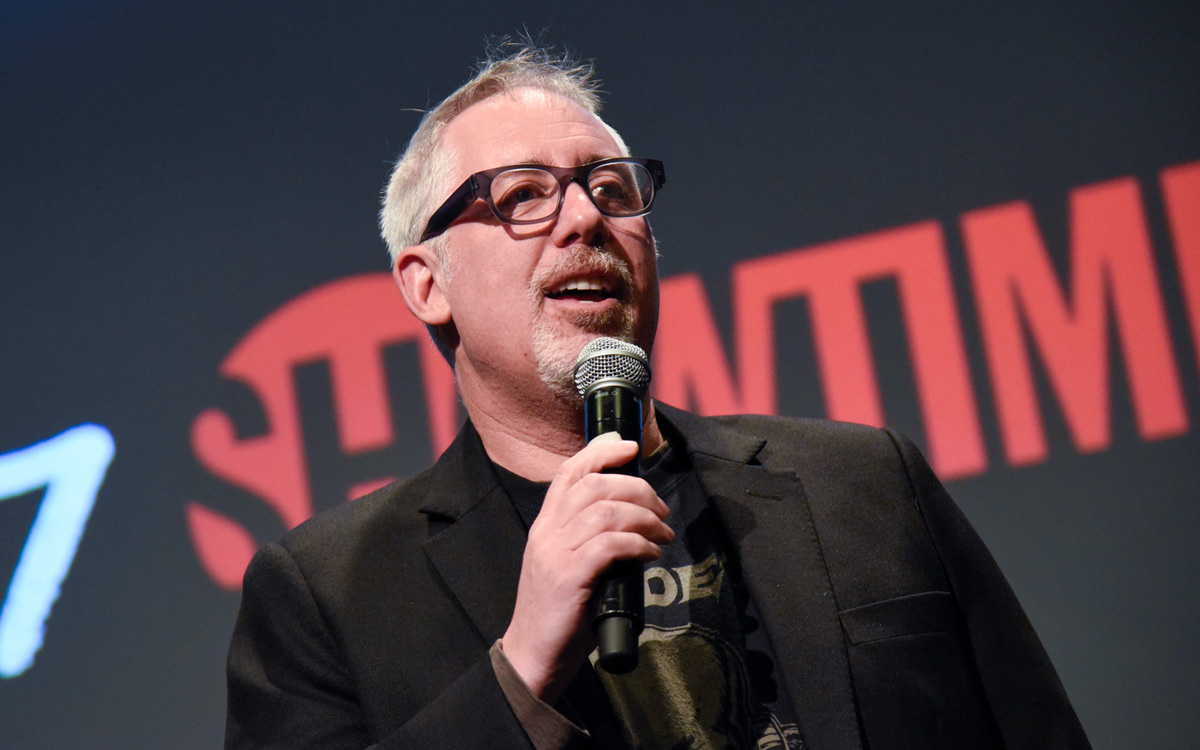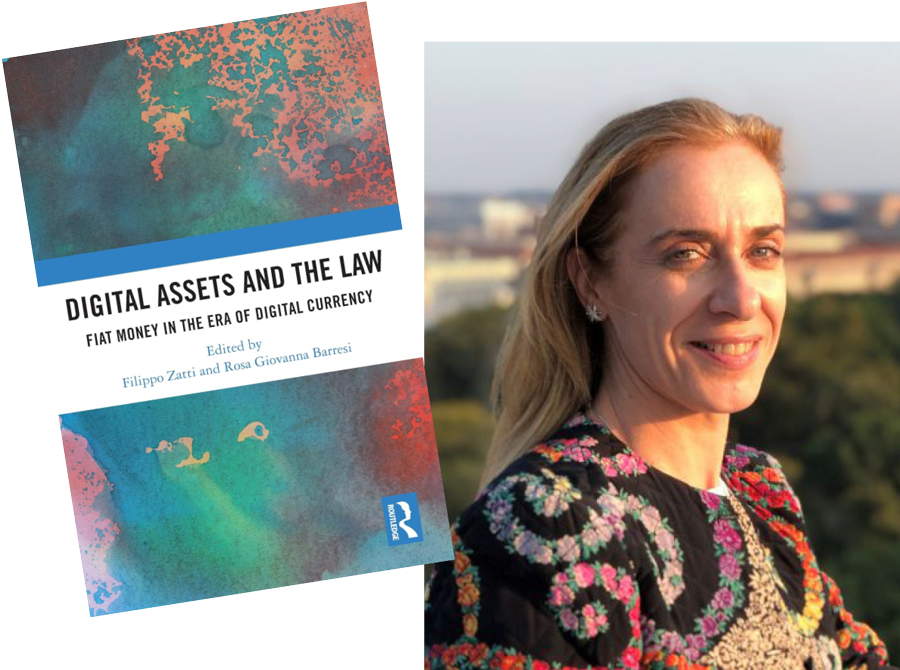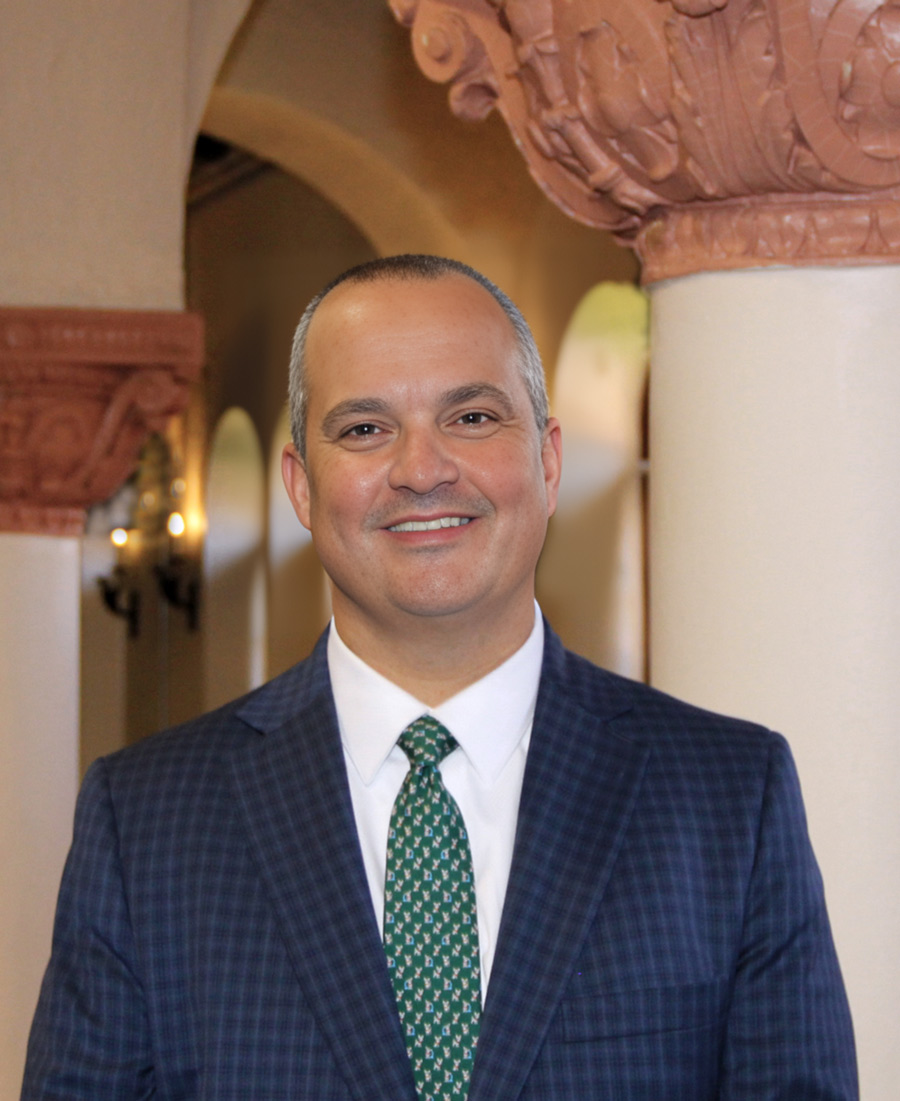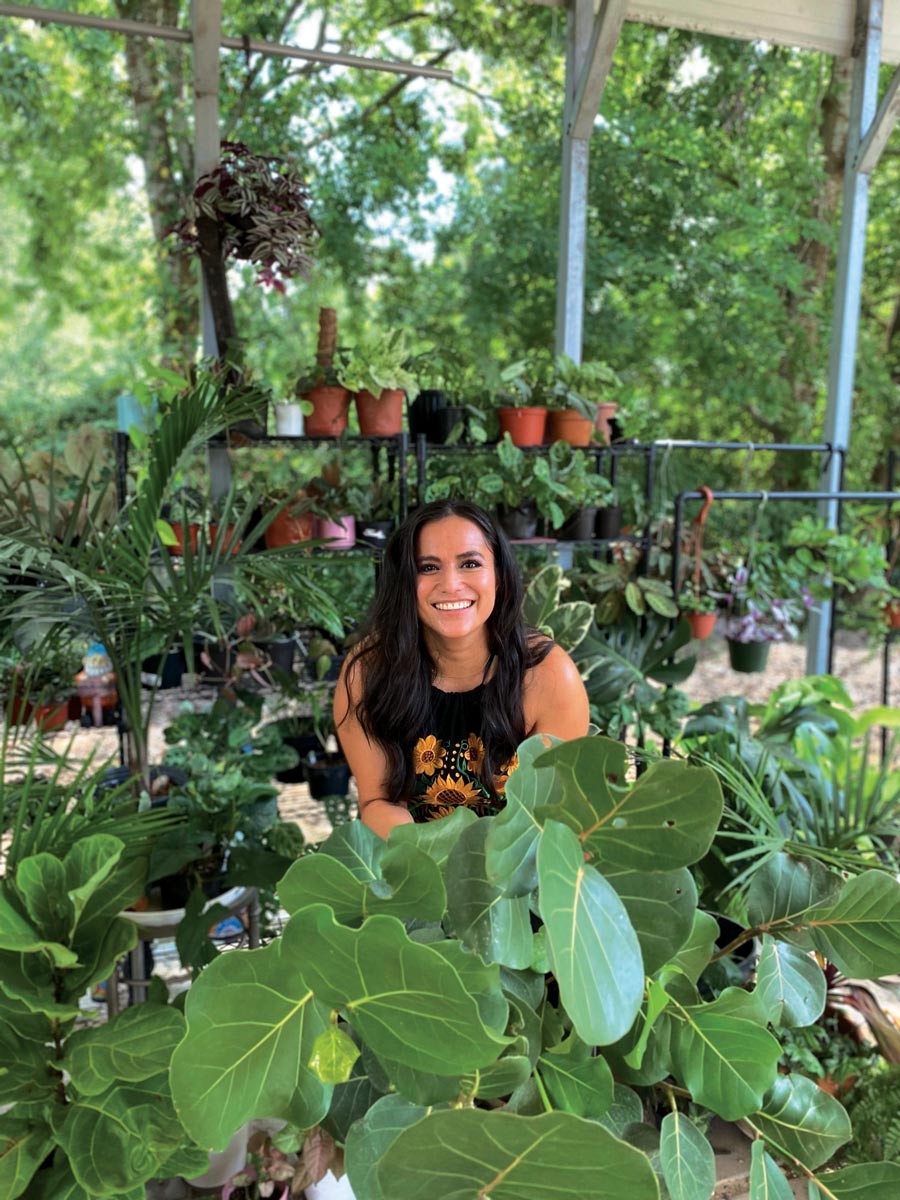THE Docket

Bringing an End to Billions
Brian Koppelman ’95 was an unlikely law student.
The co-creator and showrunner of Showtime drama Billions, which aired its finale in October 2023, had a successful music industry career when he enrolled at Fordham Law. After graduation, he put his skills to work writing screenplays and television scripts.
Legal themes feature prominently in Koppelman’s shows and movies, including the tense rivalry between a fictional U.S. attorney and a hedge fund manager on Billions. After seven seasons, Billions may be over, but viewers can look forward to more of Koppelman’s gripping narratives about money and power. He has hinted at a Billions Miami spin-off.
In the film Rounders, which Koppelman co-wrote soon after graduating, there’s a Fordham Law Easter egg many alums might recognize. Abe Petrovsky, the law professor who encourages the main character to pursue his dream of playing professional poker, was inspired by the late Fordham Law professor Abraham Abramovsky.
In the film, poker player and law student Mike, played by Matt Damon, quits law school. In real life, Koppelman didn’t. He was too intrigued by what he was learning.
Petrovsky tells Mike, “We can’t run from what we are. Our destiny chooses us”—prophetic advice from a fictional professor that Koppelman has heeded in his own journey to Hollywood.

Decrypting the Future of Digital Assets

After earning a law degree from Sapienza Università di Roma, Barresi started her own practice in Rome. Her LL.M. in Banking, Corporate, and Finance Law at Fordham allowed her to begin a new career as a specialist in the finance sector.
Since 2020, she has been a member of BABEL (Blockchains and Artificial Intelligence for Business, Economics, and Law) at the University of Florence. She recently took another position with the university teaching the Lab in Crypto-Assets, a course offered by the School of Economics and Management at the University of Florence.
Her new book, Digital Assets and the Law: Fiat Money in the Era of Digital Currency, written with Professor Filippo Zatti, is an analysis of the latest research on digital assets and its implications for regulatory policy.
“Digital currency represents a new monetary instrument, not just an electronic representation of the existing one,” says Barresi. “Introducing digital assets may affect the regulatory policy of the entire financial system, so it is crucial to explore both the regulation and the efficiency of the market and payment systems.”
Weaving Art and Law

Koh’s art has been exhibited in galleries in New York and Seoul, and her works include painting, drawing, and sculpture that look back at the traditional role played by artists, as healers and forgers of group identity, across various cultures throughout the world. “My work explores how a contemporary artist would fulfill this ancient role,” she says.
Expanding Accessibility to New York’s Subway System
“It was a very novel case,” says Brown. “For a variety of reasons, we were unable to bring this case under the Americans with Disabilities Act, so we brought it under the New York City Human Rights Law instead.”
More elevators and ramps have been installed across the subway system since the case settled in 2022, leaving Brown feeling optimistic.
“One thing that was very important for us was a timeline, so that it was concrete,” he says. “It’s going to be 30 years until we get to at least 95%, but a better statistic is that, in about 10 years, more than 50% of stations will be accessible. So this case wasn’t only about the clients. It’s for the next generation.”

Stepping Up at Stetson Law

Working with Treanor, Barros developed an early interest in property law, which remains his specialty to this day. “A lot of people have very influential faculty members who end up shaping their careers—I had Bill Treanor,” he says.
After graduating, Barros clerked for Judge Milton Pollack of the U.S. District Court of the Southern District of New York and spent several years in private practice before moving to academia as a law professor and associate dean at Widener University Delaware Law School, where he stayed for more than 10 years. He went on to become dean at the University of Toledo College of Law in Ohio.
At Stetson Law, Barros says he’s looking forward to expanding the school’s offerings in several areas, including advocacy and legal writing: “I’m really excited to take these existing strengths and build on them to make us even better for the future.”
Championing a Healthier Houston

Erandi Treviño ’22, manager for the Healthy Port Communities Coalition, has seen this up close: She has lived near the channel since moving to Texas from Mexico at age seven. She’s also been affected directly.
Treviño has been working to influence decisions made by the U.S. Army Corps of Engineers and the Port of Houston on a project to widen and deepen the channel; her concern is that the dredging process used can release toxins in the sludge, some of which gets dumped literally in people’s backyards. “A lot of times when we’re speaking with agency officials, they try to control the narrative,” she says. “My legal training has helped me quickly identify those situations.”
When she’s not advocating for a healthier Houston, Treviño runs Verandi Secret Garden, a plant nursery. If anything epitomizes the hope of a greener, cleaner future, plants do. The nursery “honestly has changed my life,” she says. “Because it teaches me everything I need to know about life and society and what I need to do.”
Chronicling America’s First Chief Justice

In The First Chief Justice: John Jay and the Struggle of a New Nation (SUNY Press 2022), Dillon sheds light on how Jay’s experiences shaped the establishment of the first system of federal courts and how the nine cases he presided over—including West v. Barnes (1791) and Chisholm v. Georgia (1793)—“have defined basic law that we take for granted today.”
Dillon says he was “on a mission” to chronicle this overlooked period in both Jay’s career and American legal history.
“Biographies would mention he went to the court, but skip over those years and then refocus on the political things he went back to doing, like the Jay Treaty and being governor of New York,” Dillon says. “There had never been any
book written where the main focus was his years at the Supreme Court and the court itself during his time as chief judge.”
Hip-Hop’s In-Demand Advocate

Simpson and her partner, Ciara Reed, are both in their 30s, which she believes is a big advantage in their work. “We’re closer in age to a lot of our clients than attorneys they may have worked with before,” she says. “And just by virtue of that, we know more of what they need—for instance, including mental health care budgets in their contracts and thinking about things that will help them invest in their future, like, do they want to own their master recordings?”
“Female founded” is central to her firm’s identity. “We work in a male-dominated industry, so we wanted to make sure there are resources for women in entertainment who want representation by females,” she says.
For Simpson, who was raised in Coney Island by a single mom—plus a grandmother and two aunts—that dedication to female empowerment is personal: “There are people where I come from who don’t have examples of attorneys in general, let alone female attorneys, let alone Black female attorneys. Ciara and I hope to be role models.”